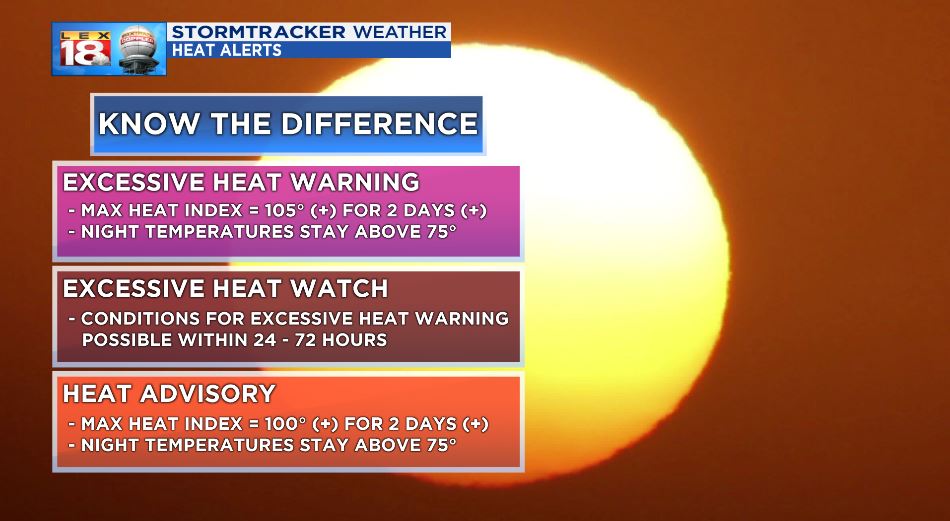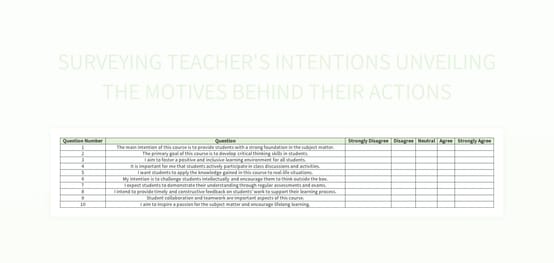Rising Temperatures Prompt Health Department Advisory: Take Precautions

Table of Contents
Recognizing Heat-Related Illnesses
Extreme heat can lead to various health problems. Understanding the symptoms of heat-related illnesses is crucial for prompt intervention and preventing serious complications.
Heat Exhaustion
Heat exhaustion is a milder form of heat-related illness, but it can quickly progress to heat stroke if not treated properly. Symptoms include: heavy sweating, weakness, dizziness, headache, nausea, and muscle cramps.
- Identifying Heat Exhaustion in Children and the Elderly: Children and the elderly are particularly vulnerable to heat exhaustion. In children, look for lethargy, irritability, and less frequent urination. In the elderly, confusion and weakness may be more prominent symptoms. They may also be less likely to exhibit heavy sweating.
- First Aid for Heat Exhaustion: Move the person to a cool place, loosen their clothing, and provide cool water or sports drinks to rehydrate them. Apply cool, wet cloths to their skin. Seek immediate medical attention if symptoms worsen or don't improve after 30 minutes.
Heat Stroke
Heat stroke is a life-threatening medical emergency. Symptoms include a high body temperature (above 103°F or 39.4°C), confusion, seizures, loss of consciousness, rapid pulse, and flushed skin.
- Heat Stroke is a Medical Emergency: Heat stroke requires immediate emergency medical care. Call emergency services (911 or your local equivalent) immediately.
- Cooling Down a Person with Heat Stroke: While waiting for emergency services, try to cool the person down by removing their clothing, applying cool, wet cloths or ice packs to their neck, armpits, and groin, and fanning them. Do not give them anything to drink.
Other Heat-Related Conditions
Besides heat exhaustion and heat stroke, other heat-related conditions include:
- Heat Rash: A skin irritation caused by excessive sweating. Prevention involves keeping the skin dry and using loose-fitting clothing. Heat rash treatment often involves keeping the area cool and dry.
- Sunburn: Caused by prolonged exposure to the sun's ultraviolet (UV) rays. Sunburn prevention involves using sunscreen with an SPF of 30 or higher, wearing protective clothing, and seeking shade during peak sun hours.
Protecting Yourself from Rising Temperatures
Taking proactive steps is crucial for protecting yourself and your loved ones from the dangers of rising temperatures.
Stay Hydrated
Staying hydrated is paramount during periods of extreme heat. Drink plenty of fluids, even before you feel thirsty.
- Recommended Beverages: Water is the best choice. Electrolyte drinks can also help replenish lost minerals, but avoid sugary drinks, which can actually dehydrate you further.
- Hydration Tips: Carry a reusable water bottle and refill it frequently. Sip water throughout the day, even if you're not engaging in strenuous activities.
Limit Outdoor Activity
Reduce strenuous outdoor activities during the hottest parts of the day (typically between 10 a.m. and 4 p.m.).
- Reschedule or Relocate: Reschedule outdoor activities for cooler times of day, such as early morning or evening. If you must be outdoors, seek shaded areas whenever possible.
- Sun Protection: Always use sunscreen with a high SPF, wear a wide-brimmed hat, and protective clothing to minimize sun exposure.
Find Cool Spaces
Air conditioning is the most effective way to stay cool during a heatwave. If you don't have air conditioning at home, seek refuge in cool public spaces.
- Cooling Centers: Many communities establish cooling centers during heatwaves. Contact your local health department or emergency services for information on nearby locations.
- Vulnerable Populations: Check on elderly neighbors, infants, and individuals with chronic illnesses who may be more susceptible to heat-related illnesses.
Dress Appropriately
Wear light-colored, loose-fitting clothing to allow for better air circulation and reduce heat absorption.
Resources and Further Information
For more information and assistance, please contact the following:
Local Health Department Contact:
[Insert Local Health Department Contact Information Here]
National Weather Service:
[Insert Link to National Weather Service Website Here]
Emergency Services:
[Insert Emergency Contact Number Here]
Conclusion
The current rising temperatures pose a significant health risk. By understanding heat-related illnesses and taking proactive steps to protect yourself, you can significantly reduce your risk. Remember to stay hydrated, limit strenuous outdoor activities during peak heat, find cool spaces, and dress appropriately. If you experience symptoms of heat exhaustion or heat stroke, seek immediate medical attention. Stay informed about rising temperatures and take the necessary precautions to ensure your well-being and the safety of those around you. Heed this health advisory and continue to monitor the forecast for rising temperatures and take preventative action. Protect yourself from the dangers of rising temperatures today.

Featured Posts
-
 Heat Advisory Issued Health Department Warns Of Rising Temperatures
May 13, 2025
Heat Advisory Issued Health Department Warns Of Rising Temperatures
May 13, 2025 -
 Making Angus A Recurring Character Strengthening Elsbeths Narrative Through Consistent Presence
May 13, 2025
Making Angus A Recurring Character Strengthening Elsbeths Narrative Through Consistent Presence
May 13, 2025 -
 Entwarnung Nach Bombendrohung An Braunschweiger Grundschule Schueler Und Lehrer Sicher
May 13, 2025
Entwarnung Nach Bombendrohung An Braunschweiger Grundschule Schueler Und Lehrer Sicher
May 13, 2025 -
 Paso Robles Heat Advisory Temperatures And Safety Tips
May 13, 2025
Paso Robles Heat Advisory Temperatures And Safety Tips
May 13, 2025 -
 Myanmar Sanctions Unveiling The Real Motives Behind Uk And Australian Policies
May 13, 2025
Myanmar Sanctions Unveiling The Real Motives Behind Uk And Australian Policies
May 13, 2025
Latest Posts
-
 Nba 2025 Draft Lottery Odds A Look At The Chances For Cooper Flagg
May 13, 2025
Nba 2025 Draft Lottery Odds A Look At The Chances For Cooper Flagg
May 13, 2025 -
 Sir Ian Mc Kellen A Coronation Street Cameo And Its Lasting Impact
May 13, 2025
Sir Ian Mc Kellen A Coronation Street Cameo And Its Lasting Impact
May 13, 2025 -
 Nba Draft Lottery 2024 Could The Chicago Bulls Draft Cooper Flagg
May 13, 2025
Nba Draft Lottery 2024 Could The Chicago Bulls Draft Cooper Flagg
May 13, 2025 -
 Celebrate The Nba Draft Lottery With A Free Party Hosted By The Charlotte Hornets
May 13, 2025
Celebrate The Nba Draft Lottery With A Free Party Hosted By The Charlotte Hornets
May 13, 2025 -
 Analyzing The 2025 Nba Draft Lottery Who Will Win Cooper Flagg
May 13, 2025
Analyzing The 2025 Nba Draft Lottery Who Will Win Cooper Flagg
May 13, 2025
